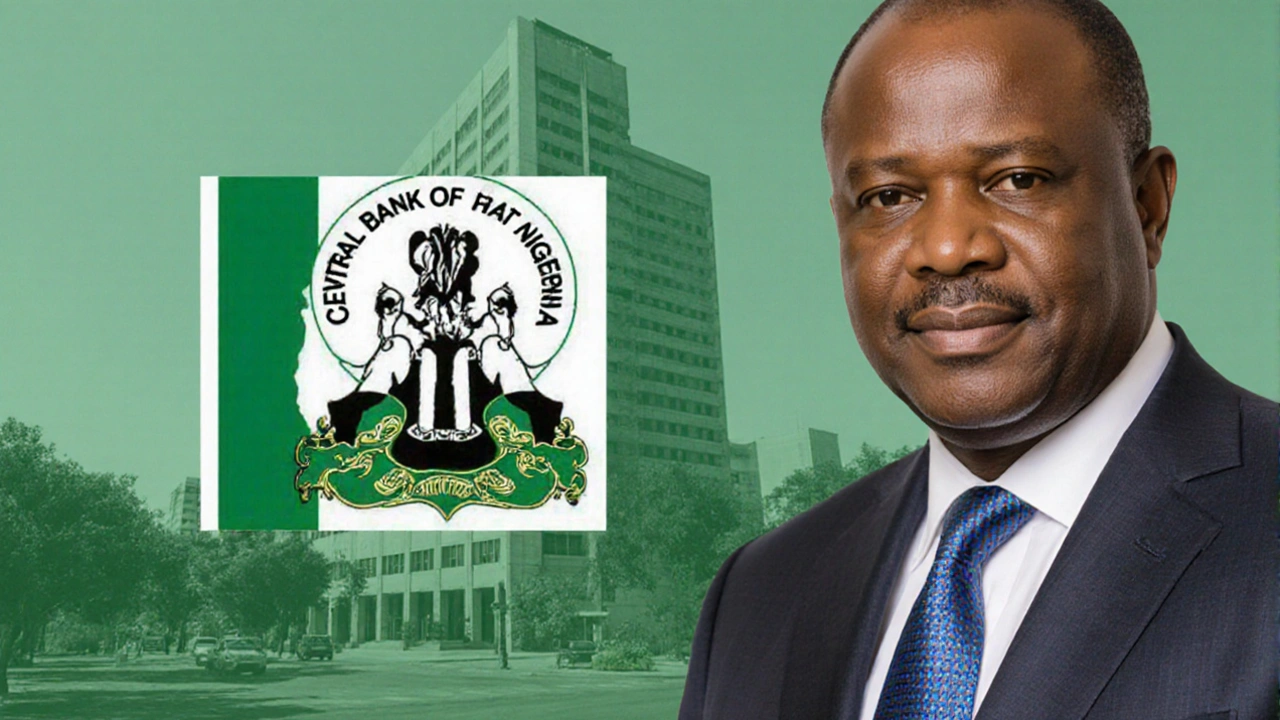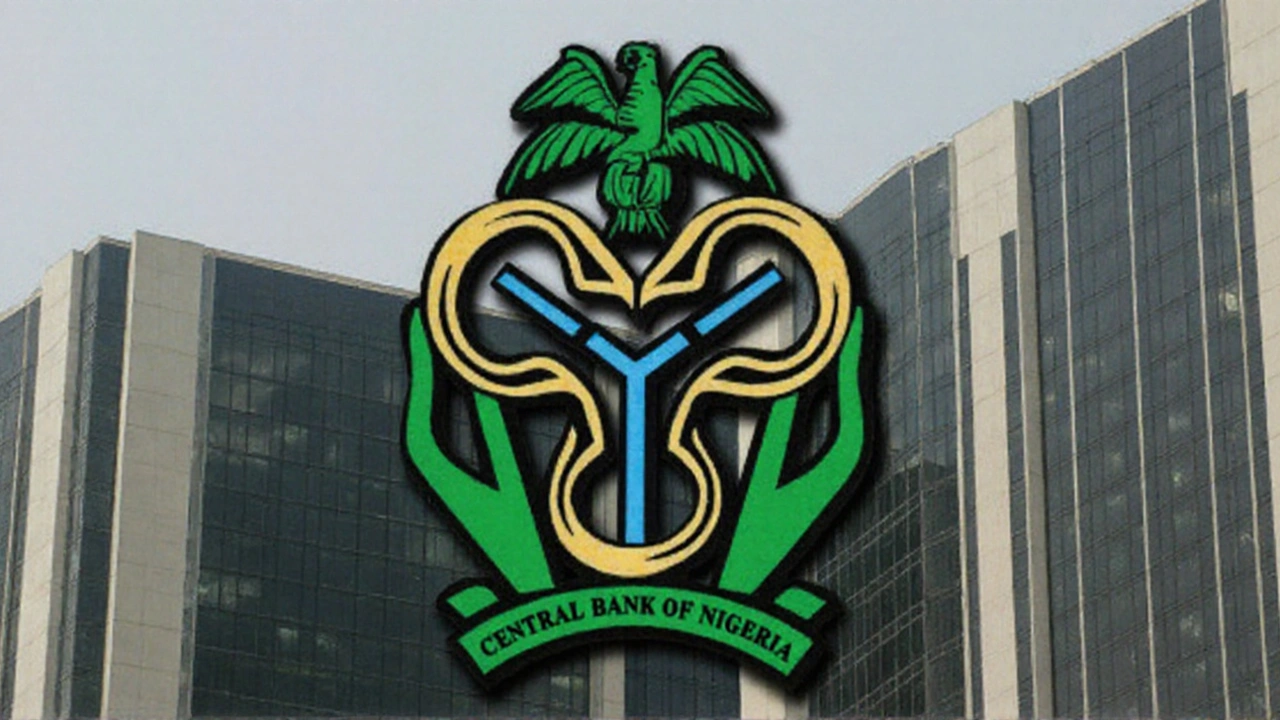When the Central Bank of Nigeria announced a 50‑basis‑point reduction in its benchmark rate, the surprise was palpable. In a climate where most emerging markets cling to high rates to curb inflation, the move felt like a gamble. Yet the data behind the decision—stronger GDP growth, a surge in foreign direct investment (FDI), and a growing appetite for naira‑based assets—suggested there was room to breathe.
Why the cut matters
At its core, the Nigeria interest rate cut signals a shift from a defensive to a more growth‑oriented monetary stance. Analysts point to three intertwined factors:
- Exchange‑rate focus: With the naira stabilising after months of volatility, the CBN can afford to lower rates without sparking a currency crisis.
- External reserves: Higher reserves give the bank a cushion, allowing it to support the economy while keeping a watchful eye on inflation.
- Investor confidence: Governor Cardoso’s tenure has seen FDI climb to an estimated $10‑13 billion, a stark contrast to the almost‑nil inflows of previous years.
This trio creates a feedback loop—stable rates attract investment, which bolsters reserves, which in turn lets the bank keep rates low. The result is a more favourable environment for both local and foreign capital.

What it means for businesses and households
Small and medium enterprises (SMEs) have historically struggled to secure cheap financing. High policy rates translate into steep loan interest, making expansion a costly gamble. With the central bank’s cut, commercial banks are expected to revise their lending rates, potentially lowering the cost of credit by several percentage points.
For a typical SME, this could mean:
- Reduced monthly repayments on working‑capital loans, freeing cash flow for inventory or staff.
- Better access to term loans for equipment purchases, as banks become more willing to lend on improved terms.
- Higher chances of qualifying for credit, since lower benchmark rates often loosen banks’ risk‑assessment thresholds.
Households stand to gain as well. Mortgage interest rates, personal loans and even credit‑card APRs are tied, directly or indirectly, to the policy rate. A cut of half a percentage point can shave off tens of dollars a month from a typical mortgage, leaving more money for consumption or savings.
However, the ripple effect hinges on how aggressively banks pass on the cut. If they choose to retain a large spread to protect margins, the benefits could be muted. In the past, Nigerian banks have been cautious, often holding onto a sizable risk premium. Watching their pricing strategies over the next few quarters will be key to gauging the real impact.
Beyond the immediate financial relief, lower borrowing costs can stimulate broader economic activity. Cheaper credit encourages entrepreneurs to start new ventures, fuels consumer spending on durable goods, and can even support the informal sector, which employs a large share of the workforce.
At the same time, the CBN’s move does not come without risks. If inflation remains sticky, a premature rate cut could reignite price pressures, eroding real incomes. The central bank has signalled that it will keep a close eye on inflation trends, ready to adjust policy if needed.
In sum, the 50‑bp reduction is a bet on Nigeria’s recent economic resilience. By easing monetary tightening, the CBN hopes to unlock financing for the engine of growth—SMEs—and to ease the debt burden on households, all while keeping an eye on the naira and inflation. The next few months will reveal whether this bold step pays off or if banks and borrowers alike need to recalibrate their expectations.







Jordyn Wade
September 26, 2025 AT 07:50 AMThe rate cut is a clear signal that the CBN is trying to shift gears. By lowering the benchmark by half a percent the central bank hopes to free up credit for the real engine of growth. SMEs have long been starved of affordable financing and this move could finally loosen that chokehold. When banks can borrow cheaper they are more inclined to pass on lower rates to their corporate clients. In turn those firms can invest in inventory, hire staff and expand operations. The same logic applies to households who will see mortgage and personal loan interest drift down. A modest reduction in monthly payments can mean the difference between a family saving for school fees or cutting back on essentials. Of course the transmission is not automatic – banks retain spreads to protect margins. Historically Nigerian banks have kept a sizable risk premium which may blunt the impact. Still, the external reserves have been bolstered by fresh FDI which gives the CBN a cushion. Investor confidence is beginning to return as the naira shows more stability after months of volatility. A stable exchange rate reduces the fear of currency devaluation that often drives up loan costs. The policy also buys the central bank time to watch inflation trends without immediate pressure to tighten again. If inflation remains tame the cut could be a catalyst for a broader economic upswing. Conversely, if price pressures re‑emerge the CBN will have to act swiftly to avoid eroding real incomes.
Zoe Birnbaum
September 26, 2025 AT 18:56 PMWell this is the kind of bold move we need-banks will finally have something to smile about! It feels like a breath of fresh air after months of tight policy.
Neha xo
September 27, 2025 AT 03:16 AMYeah, but the real test will be how quickly the lending rates actually drop.
Rahul Jha
September 27, 2025 AT 13:00 PMLook the math is simple you cut the policy rate banks cost of funds drops -> they lower loan rates 😎
Gauri Sheth
September 27, 2025 AT 19:56 PMI cant beleive they think this will magiically fix everything its just a band aid
om biswas
September 28, 2025 AT 04:16 AMDon't be fooled by the hype this is just a political stunt to look good internationally.
sumi vinay
September 28, 2025 AT 09:50 AMEven if it's a stunt the ripple could still help small traders finally get that extra capital.
Anjali Das
September 28, 2025 AT 16:46 PMYour optimism is naive the banks will keep the spread wide and nobody will feel it.
Dipti Namjoshi
September 28, 2025 AT 22:20 PMI see both sides; while margins stay high many entrepreneurs still hope any dip can ease cash flow.
Prince Raj
September 29, 2025 AT 06:40 AMFrom a liquidity risk perspective the policy easing improves the net interest margin elasticity across the banking sector.
Gopal Jaat
September 29, 2025 AT 13:36 PMBehold the grand theatre of monetary policy where every percentage point is a spotlight on the nation's destiny!
UJJAl GORAI
September 29, 2025 AT 21:56 PMAh, indeed, nothing says confidence like a half‑point trim when inflation is still doing cartwheels.
Satpal Singh
September 30, 2025 AT 03:30 AMYour sarcasm is noted; however the data does suggest a modest buffer in the reserve accounts.
Devendra Pandey
September 30, 2025 AT 11:50 AMOne could argue that the true cost of credit is measured not in percentages but in the opportunity lost during indecision.
manoj jadhav
September 30, 2025 AT 18:46 PMInteresting point! However, is it not also true that without decisive action, the market remains in a state of perpetual uncertainty?!
saurav kumar
October 1, 2025 AT 03:06 AMThe cut may boost growth if banks transmit it quickly.
Ashish Kumar
October 1, 2025 AT 10:03 AMOh please, another lazy headline that pretends a few basis points can resurrect an economy drowning in systemic inefficiencies!
Pinki Bhatia
October 1, 2025 AT 18:23 PMHopeful times ahead if it works.